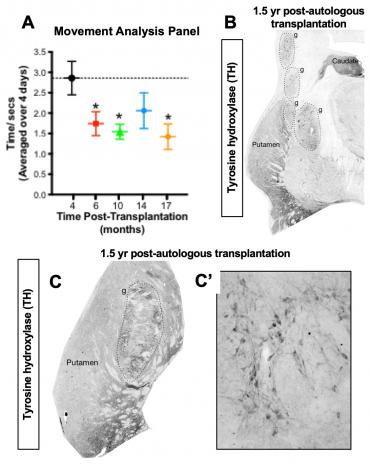Pre-Clinical Studies Toward Autologous Midbrain Dopamine Cell Therapy for Parkinson's Disease
Teresia Osborn,* Deepika Dinesh, Alyssa Moskites, Zach MacBain, Michele Moore, Oeystein Brekk, Arnar Astradsson, James Schumacher, Penny Hallett, Ole Isacson
Neuroregeneration Research Institute, Harvard Medical School/McLean Hospital, Belmont, MA, USA
* Presenting author and corresponding author: tosborn@mclean.harvard.edu
Note: This work was supported by the Michael J. Fox Foundation
Submitted: Mar 13, 2020; Published online: Apr 15, 2020

